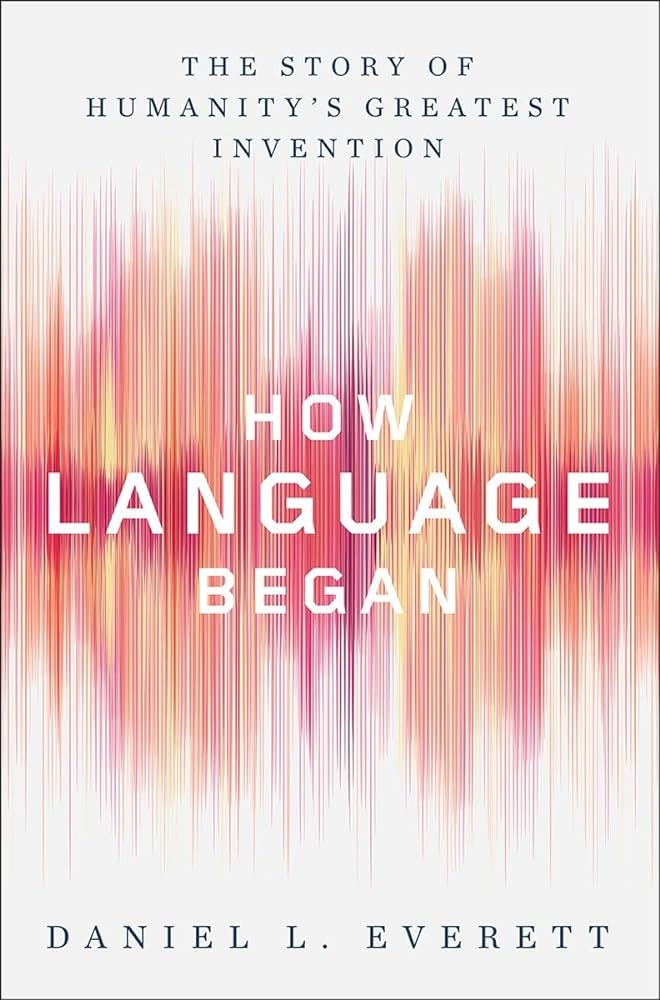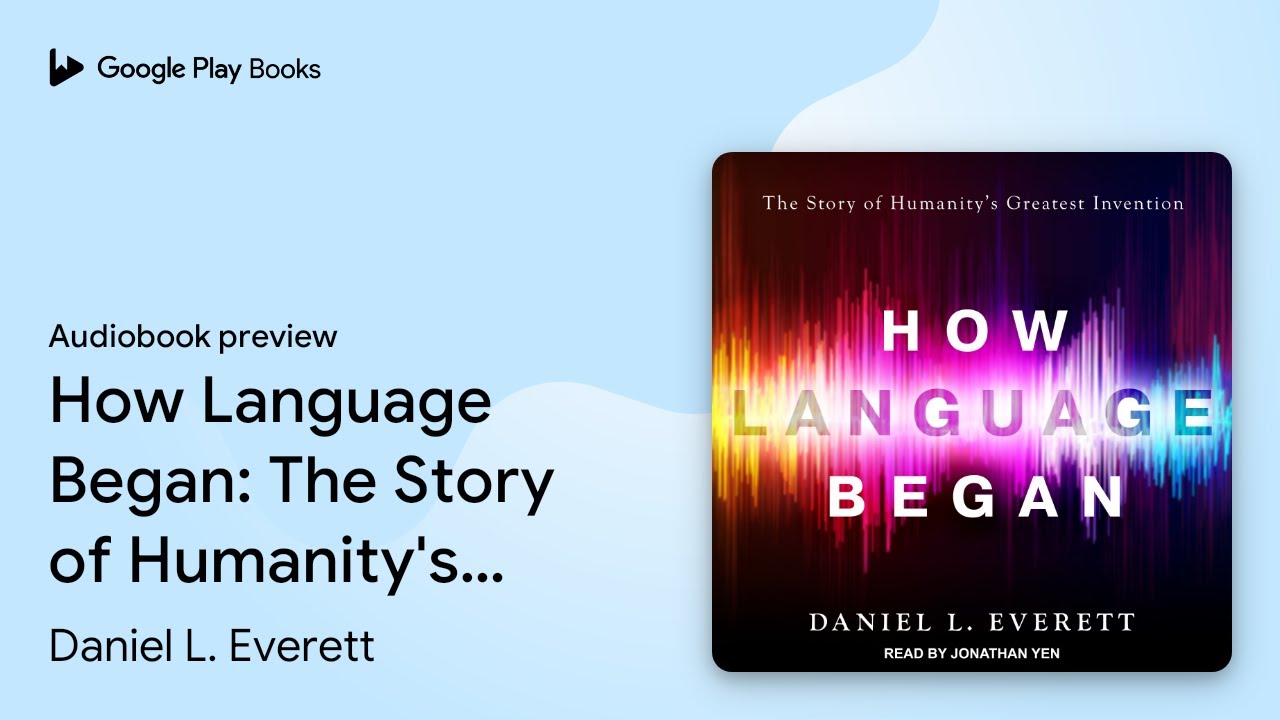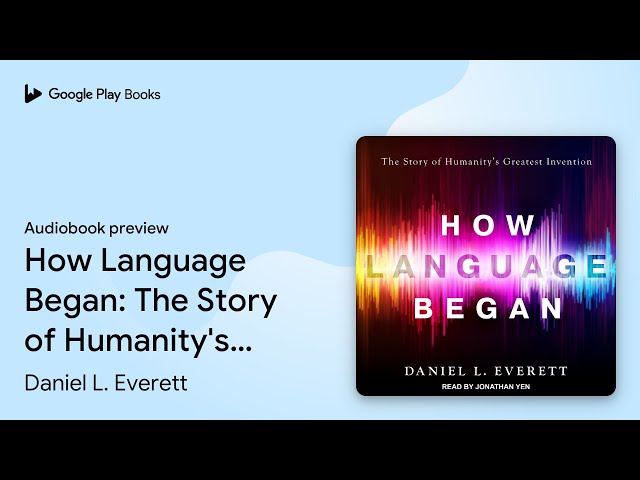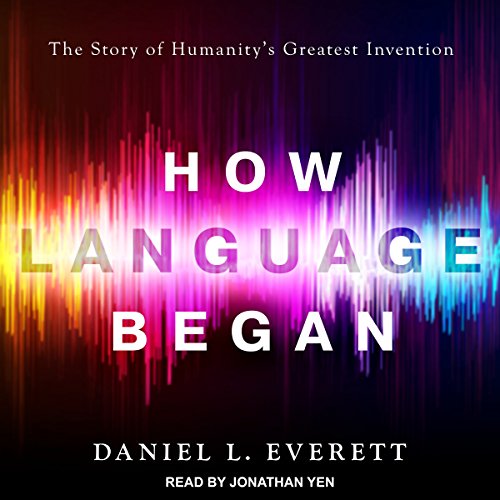Daniel L. Everett’s “How Language Began” audiobook explores the origins and evolution of human language. The book provides insights into linguistic development.
Daniel L. Everett, a renowned linguist, delves deep into the beginnings of human communication in “How Language Began. ” The audiobook presents a captivating narrative on how language shaped human history and culture. Everett combines scientific research with his personal experiences among indigenous tribes to offer a comprehensive view.
This work challenges traditional theories and proposes new perspectives on linguistic evolution. Ideal for linguistics enthusiasts, this audiobook is both informative and engaging. It uncovers the profound impact of language on human civilization. Everett’s storytelling makes complex topics accessible, making it a must-listen for anyone curious about the origins of language.

Introduction To Daniel L. Everett
Daniel L. Everett was born in 1951. He grew up in a small town in California. Everett developed a passion for languages early on. He attended the Moody Bible Institute for his initial studies. His interest in linguistics grew over time. He later pursued advanced degrees in this field. Everett earned his Ph.D. from the University of Campinas in Brazil. His education laid the foundation for his future work.
One of Everett’s major achievements was his work with the Pirahã people. He lived with them in the Amazon for many years. His research challenged many existing linguistic theories. Everett’s findings questioned Noam Chomsky’s ideas about universal grammar. He wrote several books on his discoveries. His book “How Language Began” gained significant attention. Everett’s career has inspired many in the field of linguistics.

Origins Of ‘how Language Began’
Daniel L. Everett found inspiration from his work with the Pirahã tribe. Their unique language had no words for numbers or colors. This made him think deeply about how language started. He wanted to understand how humans began to communicate.
Everett spent many years living among the Pirahã people. He observed their daily lives and learned their language. He used these experiences to form his theories. He also studied other ancient languages. This helped him compare and contrast different forms of communication. His research involved both fieldwork and academic study. This combination made his work unique and insightful.
Key Concepts Explained
Language evolution is a complex process. It started with simple sounds. These sounds became words. Words then formed sentences. Over time, languages developed different rules. These rules helped people understand each other better. Language is always changing. It adapts to new needs and contexts.
Culture plays a big role in forming language. Different cultures have different words. These words reflect their unique experiences. Cultural values shape how people use language. For example, some cultures have many words for snow. Others have none. This shows how language and culture are connected.
Challenging Established Theories
Daniel L. Everett questions Noam Chomsky’s idea of Universal Grammar. He suggests that language is not hard-wired into our brains. Cultural factors shape how we speak and understand languages. This view opposes Chomsky’s theory of a built-in grammar system. Everett believes that human interaction plays a key role in language development.
Everett challenges the idea of a ‘language gene’. No single gene is responsible for our ability to talk. He argues that language evolved from human need to communicate. Social and environmental changes pushed this evolution. Language is a tool, not a genetic trait. This idea shifts the focus from biology to culture.
Case Studies From The Field
The Pirahã people live in the Amazon Rainforest. Their language has no words for numbers. They use simple sounds to communicate. Their culture is unique and fascinating. Pirahã society is very different from others. They do not have a written language. They focus on the present moment. This makes their way of life very special. Understanding their language helps us learn about human communication.
Many indigenous languages have unique features. Some have complex grammar rules. Others have special sounds not found in English. Comparing these languages helps us see patterns. For example, the Pirahã language is very different from Navajo. Both languages show the richness of human speech. Studying them helps us understand our own language better. Learning about these languages is very exciting.

Implications For Linguistics And Anthropology
Daniel L. Everett’s work changes our view of human communication. His research shows that language can be simpler than we thought. This challenges old ideas about how humans talk. His findings are very important for linguistics and anthropology. Everett shows that humans can still share ideas without complex grammar. This helps us understand more about how early humans may have talked. It also helps us see how culture and language grow together.
Future research may look at different cultures. Scientists could study how these groups use language. This can help us learn more about how language changes. Technology might play a big role in this research. New tools can help record and study speech better. Understanding language evolution can help us know more about our own history. It may also help in education and communication technology.
Controversies And Academic Debate
Many linguists find Everett’s ideas challenging. Noam Chomsky is a major critic. He believes in universal grammar. Everett’s work opposes this. Some scholars support Everett’s view. They think language is shaped by culture. The debate is lively and ongoing. Everett’s claims spark intense discussions.
Everett defends his work strongly. He uses evidence from the Pirahã tribe. He believes their language disproves universal grammar. Everett argues culture shapes language deeply. He often debates with Chomsky’s supporters. Everett stays firm in his views. He encourages more research in this area.
Beyond The Audiobook
Reading the audiobook is just the beginning. Many other materials can deepen your understanding. Daniel L. Everett has written several books on language and culture. His work on the Pirahã people is a must-read. There are also various academic papers available online.
You can find interviews with Everett on YouTube. These interviews provide more insights into his theories. Podcasts featuring Everett are also valuable. They often cover topics not discussed in his books.
Everett’s research has changed modern linguistics. His work challenges Noam Chomsky’s theories. Many linguists now consider culture as important as biology. Everett shows how language shapes thought. This idea is called linguistic relativity.
His findings on the Pirahã language are groundbreaking. They show that not all languages follow the same rules. This has led to new field studies and research methods. Linguists now study languages with fresh perspectives. Everett’s work continues to inspire new generations.
Conclusion
Daniel L. Everett’s “How Language Began” audiobook offers a fascinating exploration of language origins. It’s a must-listen for linguistics enthusiasts. This audiobook provides deep insights into human communication’s evolution. Dive in to uncover the mysteries of how language shaped human history.
Don’t miss this captivating journey through time and words.



